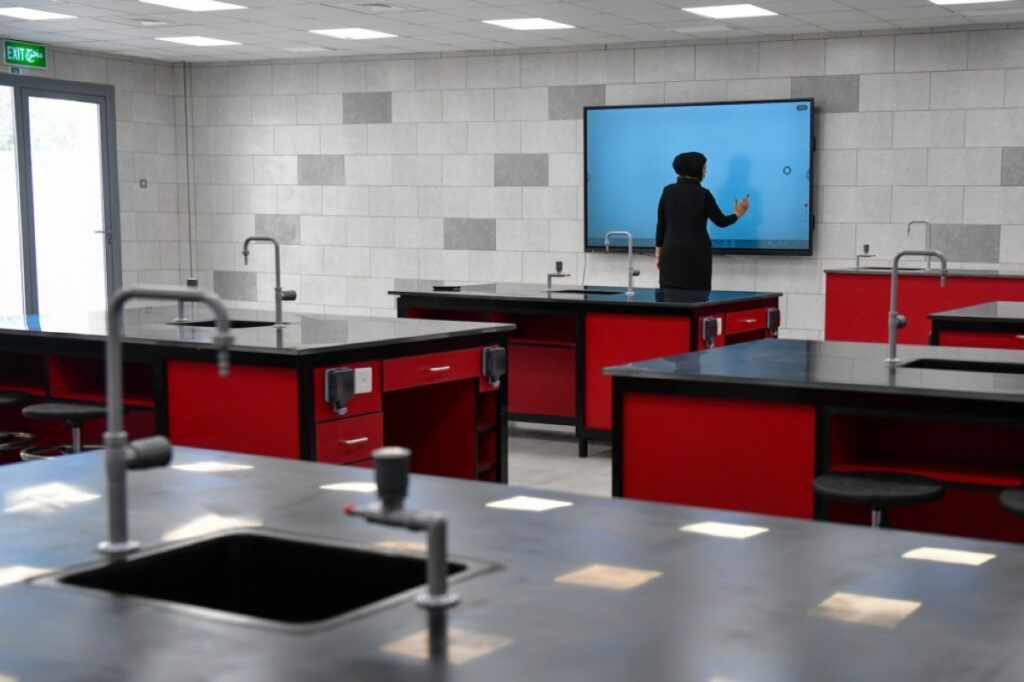Over 100 engineers work across 950 schools, using digital reporting to track repairs
KUWAIT: As students return to classrooms in Kuwait, some parents and teachers are raising concerns about school conditions, cleanliness, and safety – issues that persist despite the Ministry of Education’s annual summer maintenance across the country’s 950 schools.
Sara Almesbah, a teacher, highlighted some of the challenges on X: “I hope attention is given to older schools, like Al-Faiha Intermediate Girls School. The schoolyard, where the morning assembly and daily radio programs take place, still has no shade. All corridors and classroom wings are open without doors or air conditioning.”
Parents are also emphasizing the need for proper cleaning. Shaikha said, “There should be enough staff to clean classrooms and bathrooms properly. Schools should adopt advanced cleaning tools rather than just spraying water with detergents.”
Some say that inadequate maintenance affects children’s daily comfort and hygiene. Um Saleh, a parent, said: “In school bathrooms, fix the toilets, hoses, and door locks – our children complain.”
While parents call for cleaning and repairs, the ministry says its maintenance program addresses these concerns systematically.
Mohammed Al-Khaldi, Acting Undersecretary and Assistant Undersecretary for School Facilities, explained in an interview with KTV that ministry engineers visit schools during the summer to identify issues and ensure repairs are completed before classes begin.
A central component of the effort is the new Balegh digital reporting system, which allows administrators and engineers to log maintenance needs electronically. “There are no papers, no phone calls; all work is logged digitally. Reports are followed up, and progress is tracked through the system, accessible via tablets and mobile phones,” Al-Khaldi said.
The summer program, which began on August 1, includes deep cleaning of classrooms, corridors, and bathrooms, followed by activation of air conditioning systems in coordination with the Ministry of Electricity. Engineers also carry out extensive repairs, covering plumbing, electrical networks, air conditioning units, roof insulation and safety systems.
Last year, the ministry installed 30,000 new air conditioning units in schools, contributing to both student comfort and energy efficiency. This helped to reduce prior issues with insufficient cooling. Al-Khaldi noted one of the biggest challenges is ensuring that problems reported by schools or engineers reach the maintenance teams promptly. “Any issue not addressed within 48 hours becomes a challenge,” he said, highlighting the ministry’s goal to resolve problems as quickly as possible through both physical repairs and the Balegh reporting system.
Summer maintenance goes beyond air conditioning. Engineers face major challenges with roof insulation, bathrooms and plumbing systems, structural or “root” repairs, and electrical and non-sewage piping networks. Many tasks are time- and quality-sensitive: for example, concrete work or roof insulation requires specific curing or settling periods – sometimes up to 21 days – before the next phase can begin. These constraints mean maintenance cannot be rushed, and all work must be carefully sequenced to ensure that schools are fully prepared by September 1 without compromising quality.
Safety remains a top priority. Over 100 engineers work across more than 1,000 sites, including schools and service buildings, to ensure they meet safety standards. The preparations are a coordinated effort between Ministry of Electricity, the Ministry of Interior and the Ministry of Public Works.
But maintenance doesn’t stop when the school year begins. “Even after the year begins, our teams continue to monitor and fix issues,” Al-Khaldi reassured.

